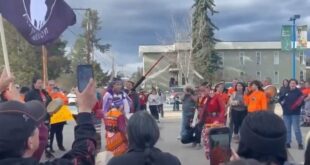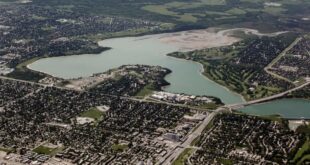'At the rate they're disappearing, we need to be acting very fast,' says founding director

Old rustic barns have long been a key part of the rural landscape in Ontario, and some advocates say they're disappearing at a concerning rate.
A non-profit group aimed at preserving old barns across Ontario has launched a census called Your Old Barn Study to track them as part of efforts to document and protect them.
"There used to be hundreds of thousands of barns, believe it or not, out there," said Hugh Fraser, president of Ontario Barn Preservation who is leading the study. "There's not nearly as many as there were, especially near urban centres — they've fallen to development."
Determining how many old barns are still out there is key to knowing how many they need to protect, said Fraser, who lives in St. Catharines.
"We know it's impossible to save all the old barns out there. But they're beautiful pieces of architecture and craftsmanship, and they contribute to our rural landscape. You don't realize they're gone until they're gone."
Old barns don't always fit into modern agriculture, he said. In some cases, they're too small for some livestock operations.
"There's so many different types of barns out there. Every single one of them has a unique history and a unique story to tell."
Agriculture has been "hugely" important in Canada since the 1800s, and still is, he said, making some barns more than 200 years old.
Ontario Barn Preservation is partnering with the University of Guelph's history department to help record the information about the barns and allow the public to input data about the location, condition, age, materials and architecture.
"At the rate they're disappearing, we need to be acting very fast to find ways to save, preserve, convert, leave them," said Krista Hulshof, founding director of Ontario Barn Preservation, which formed in 2019.
Hulshof, an architect specializing in barn conversation, lives in one she had converted into a home seven years ago just west of Stratford.
"Being a barn lover, I am very saddened when I see a barn come down," she said. "We know we won't save all of them. But my mantra is if it's not broke, don't take it down — because once it's down, you can never get it back."

Featured VideoBarns have long been a part of the rural landscape and history of Ontario. But they are quickly disappearing as time passes. An Ontario non-profit, Ontario Barn Preservation, has now launched a census to track the structures. Host Colin Butler is joined by Hugh Fraser, the group's president, to hear more.
Barn set for demolition transformed into home
The barn Hulshof and her family live in was saved from demolition. They found a farmer who proposed a new farm not having a need for the barn, and was preparing to tear it down, she said.
"We knew a demolition company that was keeping us in in the loop for any barns that [it] came across," she said. Today, it's a home with a modern, rustic and open-concept esthetic.
Hulshof submitted her own barn to the study, which is also for restored barns and barns that are no longer standing, she said.
The data collected about the barns through the study reveals patterns in agriculture, settlement patterns, different contractors and cultures that settled, based on style and characteristics, she said.
It also provides the details needed to recreate the same style of barn in the future, she said.
"I think is really cool for 100 years down the road."
The group hopes to collect data about how many barns have already been torn down across the province, information that's currently missing, she said.
"That's our next project, on the list of high priorities."
ABOUT THE AUTHOR
Reporter
Michelle Both is a reporter for CBC London. She holds a master's degree in journalism and communication from Western University. You can reach her at michelle.both@cbc.ca or on Twitter at @michellelboth.
With files from Colin Butler
*****
Credit belongs to : www.cbc.ca
 MaharlikaNews | Canada Leading Online Filipino Newspaper Portal The No. 1 most engaged information website for Filipino – Canadian in Canada. MaharlikaNews.com received almost a quarter a million visitors in 2020.
MaharlikaNews | Canada Leading Online Filipino Newspaper Portal The No. 1 most engaged information website for Filipino – Canadian in Canada. MaharlikaNews.com received almost a quarter a million visitors in 2020.







